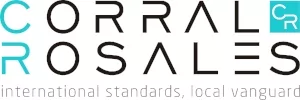By Ministerial Agreement No. 00126-2020 of March 11, 2020, the Ministry of Health declared a state of sanitary emergency in Ecuador due to the COVID-19 virus pandemic. Subsequently, by Executive Decree No. 1017 of March 16, 2020, the President of the Republic declared a state of emergency throughout the national territory. Consequently, various resolutions and administrative provisions have been established to regulate public management and the relations between the Public Administration and those administered.
In this context, the National Public Procurement Service – SERCOP issued the regulations applicable to the state of exception and emergency, in order to coordinate actions to fulfill its purposes and, in particular, guarantee the rights of suppliers to avoid discretion of contracting entities during public procurement processes due to emergencies.
The following is a summary of the regulations issued by SERCOP:
- Memorandum No.
SERCOP-SERCOP-2020-0012-C of March 16, 2020 contains the following
recommendations for suppliers and contracting entities:
- Procurement will be prioritized to guarantee the normal operation of public services and emergency procurement. Special service stations with health safety measures are established to receive offers.
- In the case of non-priority procedures, it is recommended to cancel or declare them void, depending on the status of the procedure.
- In the absence of conditions to carry out the pre-contractual stage of planned procurement procedures, entities are encouraged not to publish them.
- If there are contracts in the contractual execution stage, the administrator must fully comply with the functions established in the respective contracts.
- Although recommendations do not include it, the legal provisions on unforeseen events and force majeure are applicable to public contracts. The act of authority that declared the state of emergency in the territory of Ecuador, which suppressed and limited the rights of people, among them economic operations and activities and mobility, except in certain excepted cases, constitutes an event of force majeure. These acts of authority are spearheaded by Executive Decree 1017 but include others such as Ministerial Agreement 126-2020, which establishes the health emergency and the constant provisions of the National Emergency Operations Committee (“COE”). In turn, these force majeure events originate from an unforeseen event and its effects, which go beyond the decreed state of emergency, such as the COVID-19 virus declared by the World Health Organization as a pandemic, which has also been ratified by the government of Ecuador. These events constitute extraordinary and irresistible unforeseen events, which have placed the population of Ecuador (and the world) in an emergency situation, making it impossible for the normal development of the usual commercial and productive activities of the public and private. Likewise, they have placed current obstacles to the execution of contractual relationships, which clearly exceed the control and predictability of the parties, and which could be alleged as long as they generate real and verifiable effects with the purpose of exempting the fulfillment of contractual obligations or the termination of contracts according to each case.
- SERCOP guarantees service for procedures, claims and complaints through telematic means. Face-to-face trainings will be rescheduled.
- Memorandum No. SERCOP-SERCOP-2020-0013-C of March 17, 2020 establishes the guidelines for submission of offers during the health emergency, and provides that contracting entities in the different contractual procedures, in a compulsory way, will indicate in the field of observations in the form, that the offers and validations can be received by the following means: physical, Courier (regular mail) or email, also indicating in the form the institutional mailing address to receive them.
- Resolutions Nos. RE-SERCOP-2020-0104
of March 19, 2020 and RE-SERCOP-2020-0105 of April 6, 2020, which
reform Resolution No. RE-SERCOP-2016-0000072, of August 31 2016,
which contains the Codification and update of resolutions issued by
SERCOP. These resolutions, the main aspects of which are listed
below, should apply to contracts in an emergency as of March 20,
2020:
- The contracting entity must expressly declare that there is an impossibility to carry out common procedures to overcome the emergency situation, qualifying this situation through a motivated administrative act that must be published on the PUBLIC PURCHASES Portal, and that will constitute a requirement which enables to continue with the emergency contracts.
- The term of the emergency declaration may not be greater than 60 days unless a new Executive Decree is issued extending the state of exception.
- For the procurement of works, goods or services in emergency situations, including consultancy, a direct and objective relationship must be verified between the emergency situation and the urgency of carrying out a procurement procedure to supply a current and emergency need that has arisen as a result of the aforementioned situation. For all emergency procurement, prior certification of budget availability will be necessary.
- Emergency purchase will be made through a selection of suppliers in an agile, fast, transparent, and simple way, seeking to obtain the best costs. For this purpose, the entity or central governing body may consolidate the demand of all bodies or entities of any nature to carry out a single selection procedure.
- In emergency procurement for the acquisition of drugs, medical devices or supplies, biochemical or diagnostic reagents, and other strategic goods in health, or the provision of health services or funeral; The analysis of the market offer will be considered fulfilled when the contracting entities publish their contracting needs on their institutional website; and, based on the proposals they receive, select the ones that best suit institutional interests. For these contracts, the supply and demand that exists on the market at that date will be considered as an indispensable parameter.
- In emergency procurement carried out directly by the contracting entity (acquisition of goods abroad), verification of the absence of national production or supply will not be required, nor will import authorization by SERCOP.
- All contracts, purchase orders or invoices generated within the framework of the emergency declaration must be done in writing through physical or electronic means. Contracting entities may improve the instruments using transmission of data messages in accordance with the provisions of the Electronic Commerce, Electronic Signatures and Data Messages Act. When in emergency contracts is impossible to access to notarial services, the contracting entity, in an exceptional and provisional manner, will endorse with administrative officials those enabling documents necessary for the signing of the contracts. The establishment of consortiums by private means will be allowed, which will be formalized by public deed once the notarial services have been restored. The contracts that by provision of the law require to be protocolized will be executed from their subscription and will be protocolized later. Currently, some notaries may protocolize these contracts.
- For contracts in an emergency, SERCOP may, at any time, initiate the necessary control actions to guarantee compliance with the issued regulations.
- The norms that regulate the temporary association to make corporate purchases between contracting entities will not be applicable to cases of centralized (corporate) purchases of emergency.
- In the event of emergency declarations issued and published by the contracting entities until before the validity of the Resolutions, they will be forced to comply with and adapt to their provisions.
- Memo No. SERCOP-SERCOP-2020-0014-C of March 26, 2020 reiterates, within the framework of the regulations issued by the state of emergency and health emergency, the obligation of the contracting entities to implement electronic signature in public procurement procedures; which will allow the opening of a new way of communication with citizens in a more agile way and will reduce the processing time of the procurement procedure, safeguarding and guaranteeing the safety of citizens.
Additionally, SERCOP maintains on its website an updated list of products and services needs in the state of emergency along with delivery conditions. They can be found in the following link:
https://www.compraspublicas.gob.ec/ProcesoContratacion/compras/EMG/EmgRegistros.cpe
It is essential that SERCOP efficiently apply in practice the provisions of the regulations issued and carry out the necessary control management for its effective compliance.
Originally published by Corral Rosales, July 2020
The content of this article is intended to provide a general guide to the subject matter. Specialist advice should be sought about your specific circumstances.

